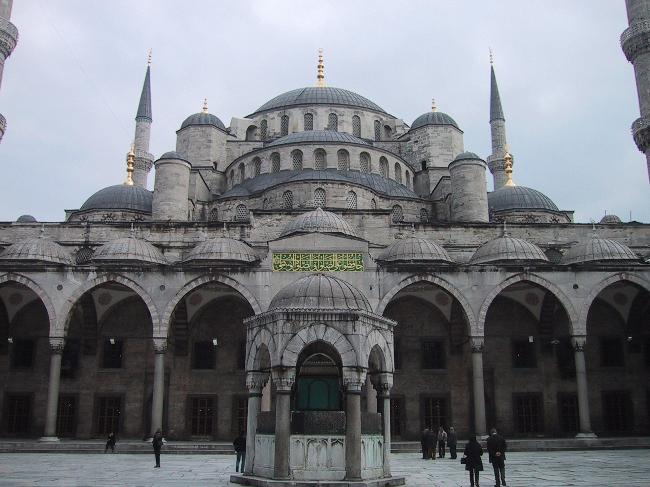Turkey is supposed to be one of the great emerging markets. Unfortunately, its growth has been derailed, its nation was hit hard by protests and unrest over the summer, and now it is among the eleven nations suffering the worst inflation for its consumers. It also seems close to certain that the attempts to join in on the Euro are probably dwindling close to zero. Credit Suisse issued a report signaling light at the end of the tunnel may be far closer than many investors suspect. Source: CIA World Factbook
Source: CIA World Factbook
Credit Suisse decided to bring in a serious upgrade for the nation’s weighting inside emerging market economies. The firm’s Alex Redman upgraded to Turkey to Overweight from Underweight within an emerging EMEA equities portfolio. The weighting was lifted to 10% from 5% and the thesis is that the major risks have been removed.
Redman said, “We now believe the environment has changed significantly for the better for Turkey. He went on to identify three significant steps for Turkey here, as follows:
- (i) the US and Russia agreed on the destruction of Syria’s chemical weapons thus indefinitely removing the risk of US airstrikes;
- (ii) Larry Summers withdrew his candidacy for chairman of the Fed, leaving Janet Yellen as the leading contender;
- and (iii) earnings for Turkish banks continue to be adjusted downwards thus further reflecting the reality of a new higher-interest rate and potentially lower loan growth outlook.
The iShares MSCI Turkey Investable Market Index (NYSEMKT: TUR) was up by 0.3% at $55.95 in late-Tuesday trading. We would caution that there is significant upside ahead if the nation can get back on track. This ETF has a 52-week range of $47.27 to $77.40, implying that the ETF would have to rally close to 40% before hitting a new 52-week high again. Average volume here is over 400,000 shares per day.
Turkish Investment Fund, Inc. (NYSE: TKF) is showing a different reaction entirely. Its share price was down 0.6% at $14.98 in late-afternoon trading on Tuesday. It is also suffering severe losses from its 52-week high as the 52-week range is $13.05 to $19.92. This fund has operated since the early 1990s but the average volume is now down to about 44,000 shares now that there is an ETF. We would caution that the Closed-End Fund Center gives this one a 13% discount to its net asset value.
Turkcell Iletisim Hizmetleri AS (NYSE: TKC) is a key telecom player in Turkey. Its ADRs trading in New York were actually up 1.2% at $14.81 in late-Tuesday trading. Many US investors do not know this company, but it has a $13 billion market cap and its ADRs have traded in a range of $12.76 to $17.80 over the last year.
The last company we would point out is National Bank of Greece SA (NYSE: NBG). Yes this is a Greek company, but it owns Finansbank in Turkey and that unit has been helping NBG while its woes in Greece have been widely reported along with the rest of Greece. Its ADR shares were down 0.6% at $4.14 in late Tuesday trading, but its 52-week range is $2.85 to $32.50 on a split-adjusted basis.
Turkey’s unemployment rate was recently at 8.8% and its implied inflation rate was about 8.9%. Unfortunately, GDP was down to 3% versus close to 9% as recently as 2011. If Alex Redman is correct, Turkey could be a destination for Western investment again rather than just tourism.
Sponsored: Want to Retire Early? Here’s a Great First Step
Want retirement to come a few years earlier than you’d planned? Or are you ready to retire now, but want an extra set of eyes on your finances?
Now you can speak with up to 3 financial experts in your area for FREE. By simply clicking here you can begin to match with financial professionals who can help you build your plan to retire early. And the best part? The first conversation with them is free.
Click here to match with up to 3 financial pros who would be excited to help you make financial decisions.
Thank you for reading! Have some feedback for us?
Contact the 24/7 Wall St. editorial team.



